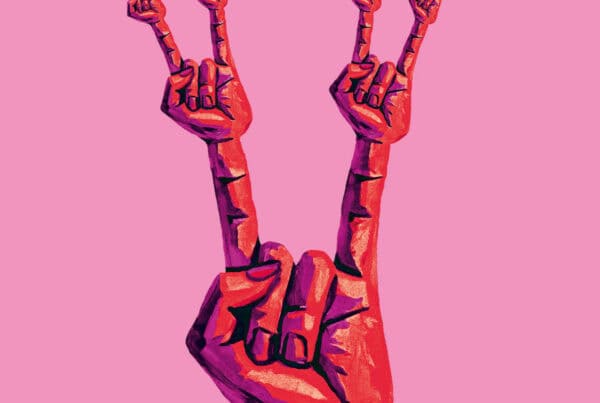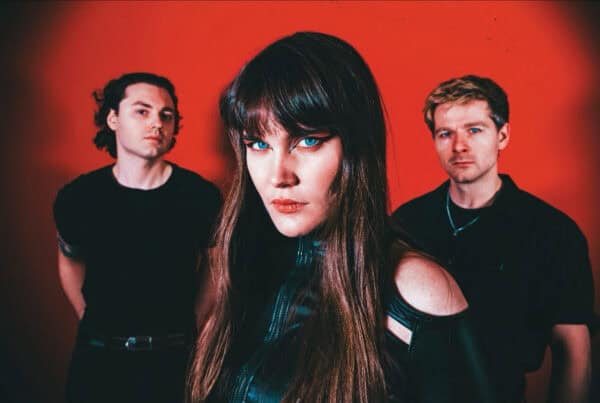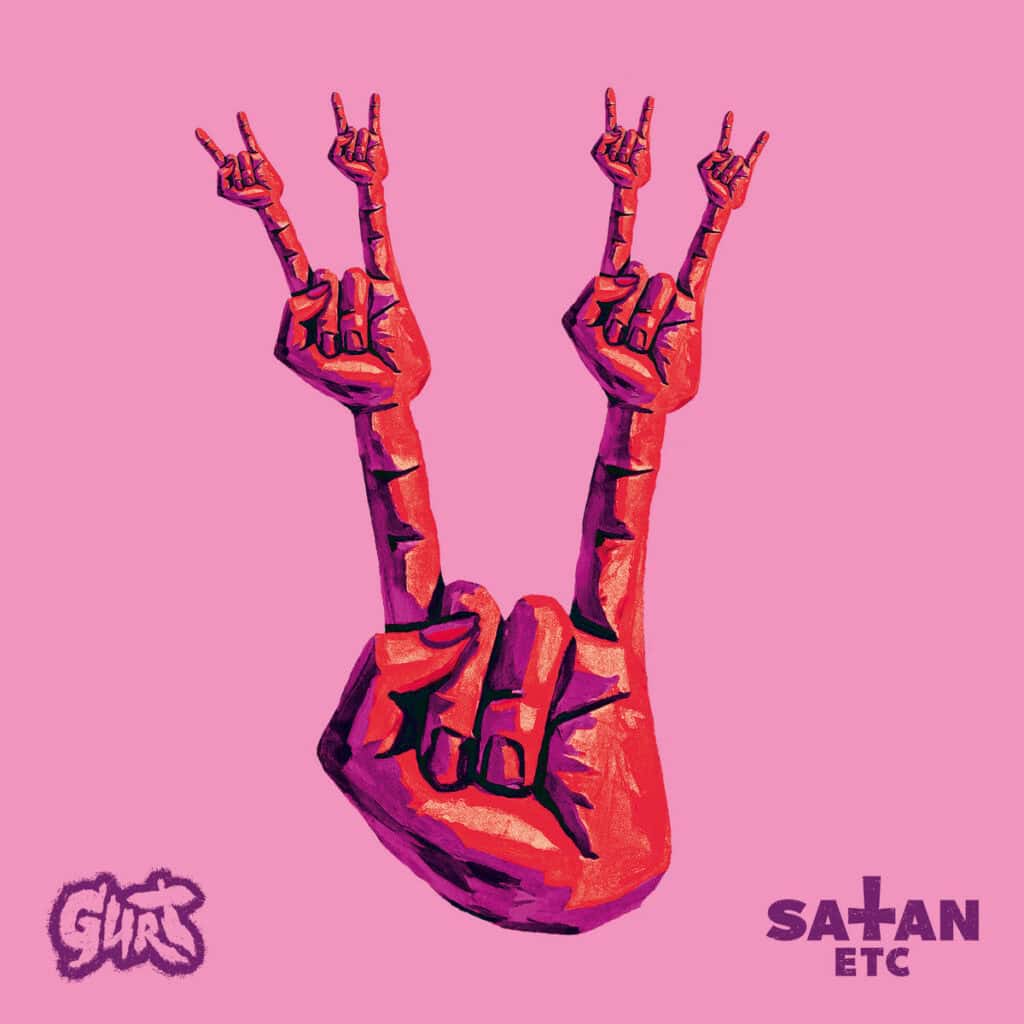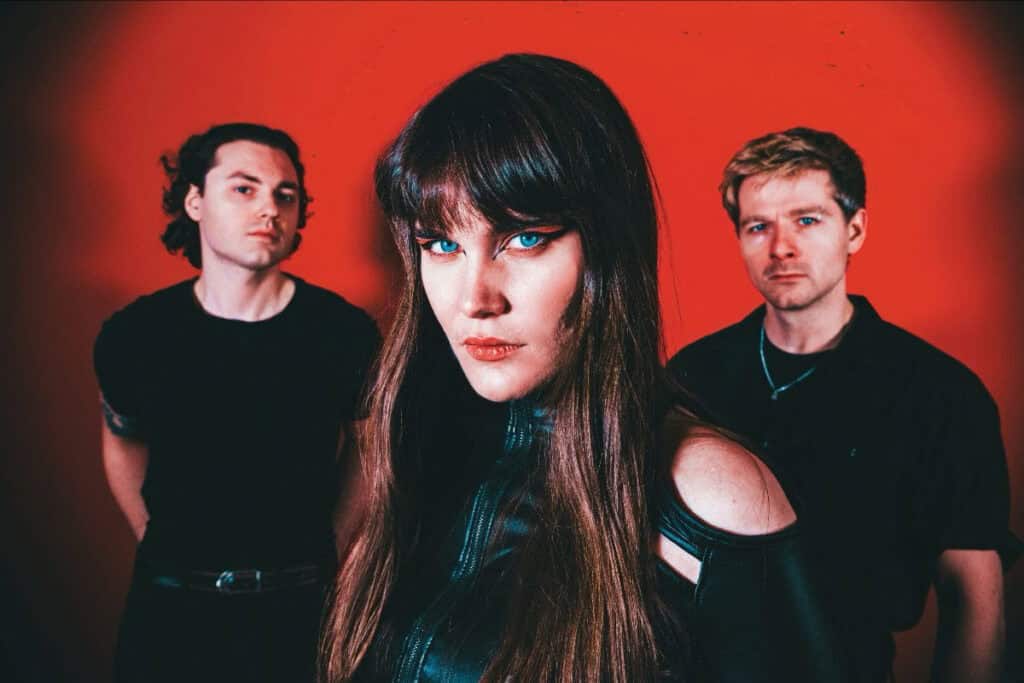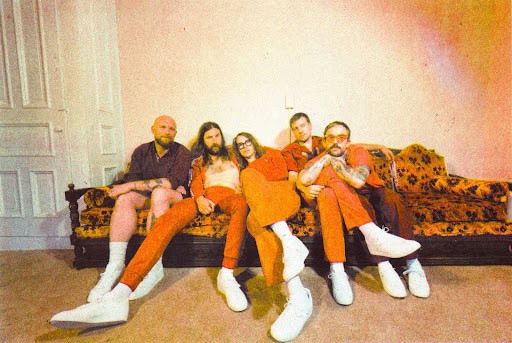In our latest Artist Spotlight, we chat to the enigmatic, and intense Lana Del Rabies about the influences and ideas that shape her forthcoming album, ‘STREGA BEATA’.
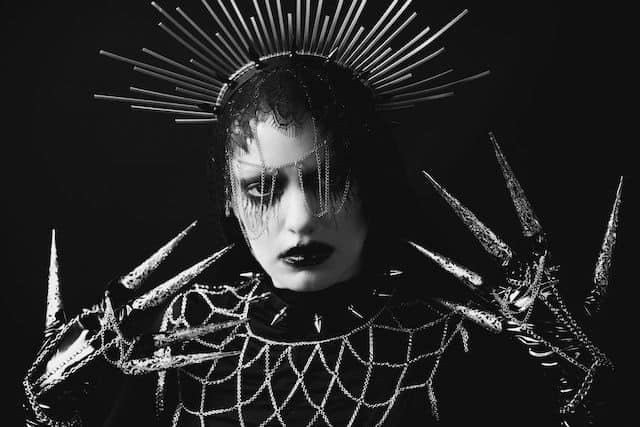
Hello, how are you?
I’m a bit tired and always concerned about the state of the world but also better than ever in some regard!
How important is the image and visual aesthetic of Lana Del Rabies?
I would say visual aesthetic is more important than “image”. I’ve always been a bit at odds with the idea of self-branding and being a persona, especially with how necessary it is these days. It’s not that I don’t understand how to do it; I just have never been inspired by one-dimensional art and ideas (or people for that matter) and I actively seek out things that can’t be neatly categorized. That goes for a lot of the work I do too.
In terms of visual aesthetics, I was a visual artist before I started working with audio and music, so for me, all mediums are just different formats to express an idea. With every release, I’m also very involved with brainstorming, planning, and executing all the visual elements that go with it – photos, videos, design, etc. I tend to do most of it myself, but with STREGA BEATA, this was an opportunity to bring in other artists/friends into other parts of the process. I’ve been collaborating with a lot of different people on these elements for over 2 years, and it’s been satisfying to finally see it come together.
How do you define success now, and has that changed throughout your career?
I will admit I used to heavily internalize what other people thought of me and I have also had growing pains in my career with being self-critical and overly focused on how “successful” certain accomplishments were. I think when you over-identify yourself with your work, it’s easy to become fixated on if you are “enough” as an artist- or even a person. I used to take “setbacks” really personally. I don’t think being motivated by achievements alone is ever really satisfying and it was something I needed to learn.
I think success is a balance between actually doing your best to create and execute an idea, and giving yourself the best shot at getting it out there and giving something to other people. I think the actual goal behind wanting to achieve something with your work should contribute something valuable to your quality of life and/or get you in an optimal position to give something to other people, whether it’s through your work or the ability to give a platform.
What about legacy, both on an artistic and personal level?
I think most people want to be remembered for something they contributed to the world. For me, I think legacy ties into my idea of success because I want my work to give something meaningful to others for years, whether it’s catharsis or inspiration, or both. I also would hope to be in a position where I have the platform to help other people get their work and what they have to offer out there. Supporting good and talented people is to me the point of a legacy.
‘Forgive’ is a beautiful way to end a very intense sonic record, can you talk me through the development of that one?
That’s actually the heaviest (as in emotionally) track on the record for me, despite it being one of the least “heavy” tracks sonically that I’ve ever done. The entire process of writing STREGA BEATA was a huge undertaking that took 3 years longer than I intended to finish and release.
It started as a concept record using mythology and religious stories to create a metaphor about how overwhelming it is to exist in a time where it feels like humanity may be on the precipice of irrevocably destroying itself and the environment, and how we have access to witnessing all of that destruction in real-time, all at once, almost the way a god or deity would. There were other things I was processing as well, like the way we tend to be so careless and cruel with children as a society. At the beginning of the writing process, I was working a job involved with child welfare, and there were a lot of things happening politically in the U.S. that were making that more of a public conversation. For me, there was a lot of grief in the idea that we as a species would have such an incredible world in front of us, and we are potentially reaching the endpoint. Everything that was already there was only made more complicated by the pandemic and death in my personal life.
Forgive is a track that is the acceptance of grief and the inevitability of death or reaching an endpoint. Whether there truly is a man-made apocalypse coming, something personal is lost in a painful way, or you are on the edge of death, there will be that moment where you know you no longer have control of where you are now and you have to find peace in the transition. That sounds morbid, and I’m not advocating for apathy, but what I mean is that everything ends, and that is the only thing we can ever know in this life. On a personal level, the song is about needing to Forgive myself for being in dark places in my life, and knowing that when I die, that I can look back and know I made the effort to do better.
‘Mother’ is particularly haunting as well, is it important for you to have that space and atmosphere that builds in your songs?
I think that playing with atmosphere and space is one of the most exciting things about making music. I find myself most drawn to music that makes an effort to create movement either through transitions or density, especially if they make an effort to draw from different genres to create something compelling. I think it is a reason why I am not easy to categorize with what I do, and why I don’t know where to begin when people ask me about what my music is like if they haven’t heard it. I respect artists who master a single genre and can write to a specific structure, but it’s just never been something I’ve been interested in. I always want to push what I’m working on to be something I haven’t heard before.
What are the biggest challenges of taking the project out live, it seems to be quite intense for you as a performer, as in, it seems to take you to a “different” place or space?
The biggest challenge is honestly remembering and executing all my cues for playing the tracks properly. The physical, cathartic, performance element is actually the easy part for me – that’s intuitive and freeing. It can be physically and emotionally demanding, but it is a huge reason I love playing live shows. There is nothing else like it in day-to-day life, and I love being in an honest and vulnerable space with others that way. It’s that “different” place that I hope to bring myself and others into. I just have to also keep the disciplined part of myself engaged so that I can actually play my music in the process, which is actually more strenuous.
From listening, and watching the live performance, would it be accurate to say that LDR is very much catharsis for you, and a way to process these various challenging experiences?
I honestly don’t know where I would be right now if I had not started this project at the point when I did – it really got me through some incredibly dark periods of my life. The level of intensity that went into this project during that time is part of why I wanted to start over with a new name a few years ago. I honestly wanted a fresh start without the baggage of my past. Things obviously went another way, and I was surprised to find that a lot of people cared about the LDR project after I tried to change it. I’m now glad that it’s still a part of me and that it has evolved with me.
Is there anything that I’ve missed that you would like to add?
Not really, just that I’m grateful this record is finally coming out, grateful that other people are excited for it, and that I am very ready for whatever is next.
Finally, what is a “gem” of advice that you have received, musically or otherwise that you carry with you each day?
Focus your energy on what is in your control.
Thank you so much for the time!!
Thank you!
—
Lana Del Rabies forthcoming album, ‘STREGA BEATA’, is set for release March 17th, 2023, on 2XLP/CD/Digital through Gilgongo Records.
After a brief hiatus, Sam An‘s dark electronic, genre-bridging solo project under the semi-notorious moniker Lana Del Rabies makes a potent return. ‘STREGA BEATA’, which loosely translates to “Blessed Witch,” is an apocalyptic myth told through dense, textural compositions pulling from the vast corners of dark genre music. The title’s meaning is appropriate for the existential, cathartic, and otherworldly themes explored.
The album begins with the ominous scorn of the all-knowing, intangible creator in “Prayers of Consequence,” with the lyric “You don’t know, what I’ll show,” coming in after the thundering kick of hypnotic, ritualistic drums and a delicate looped piano sample over a deep bass drone. The song moves into a layered, rhythmic warning from many voices, about the consequences of brutality and apathy, and the saga of a deity grappling with a man-made apocalypse.
The accompanying video is a collaborative effort between 5 American artists residing the southwest to bring the mystical and allegorical imagery of the song to life. Louise Saafi, Adam Cooper-Terán, Abraham Cooper, and M. Dean Bridges all collaborated to film various rituals performed by Lana Del Rabies over a span of 2 years in different landscapes of Arizona. A majority of the imagery was conceived between Sam An (Lana Del Rabies) and Louise Saafi in 2021 to depict and embody the multifaceted “Mother” creator figure that narrates STREGA BEATA. All of the artists involved collaborated to find environments that would be the setting of these rituals and shot their perspective of the events. These rituals are intended to transmute grief around violence and loss, in and of the natural world. The final product is a collaborative phantasmal vision between An and Cooper-Terán’s editing.
Listen to “Prayers of Consequence”: https://youtu.be/nW5Jl96S8vc
Other streaming options: https://songwhip.com/lanadelrabies/prayers-of-consequence
“There is a specific type of grief that comes from witnessing the brutality of what humans are capable of towards each other. If that grief goes unprocessed, it is doomed to also manifest as brutality,” says Phoenix-based musician and producer Sam An. “There have been many moments while writing this record that I was grieving through an event that was personal or worldwide, and then another sudden, tragic event would happen. I needed to re-evaluate what I wanted to say because my world and perspective had shifted again. Trying to keep up with tragedy can make one feel helpless, and one way to feel in control is through acts of destruction. My personal impulse towards destruction nearly ended this project.”
Written, produced, and almost entirely performed by An, she says, “I started writing the third record immediately after the promotion of Shadow World. I had recently become sober and was mending myself not just from experiences of abuse and trauma that occurred throughout my life, but processing how I had abused the people closest to me in my most out of control moments. I also at the time had a job involved in child welfare. The not-new and on-going the violent separation and exploitation of children at the US/Mexico border was everywhere in the media, and directly affecting the community around me. Brutality often feels like it is everywhere with how we experience the world now, but for the first time, I could not numb myself from it. That awareness only extended through the world events we all have had to live through these last few years, and the personal loss that came from that. I began working through the pain of abuse, death, and grief, through an actual story in my work”
This is where the mythical allegory in ‘STREGA BEATA’ begins – the record is told through the evolving perspective of a cryptic and obscure “Mother” creator figure, specifically echoing the mother and crone goddess archetypes. This figure is vocalized through LDR’s eerie harmonies, spoken words, pleading howls, and frenetic screams aimed towards another archetype, the chosen one. These vocalizations sometimes hover above trip-hop low tempos and unnerving atmospheres (“Mourning,” “Hallowed is the Earth”), sink through vintage horror movie darkwave synths (“Master,” “Apocalypse Fatigue”), weave through art metal distortions and relentless drone bass tones (Mother), or blast through unconventional industrial rhythms (“Prayers of Consequence,” “A Plague”).
Ultimately, ‘STREGA BEATA’ is a deep exploration of the cyclical consequences of unhealed grief for us and our world. “I have used this story to process the harm that power enables. There is a fine line between empowerment and using power to cope with the feeling of losing control. I thought a lot about the power of the natural world, particularly storms, while writing this. Storms are created by opposing pressures, causing destruction. It’s interesting how some ideologies will co-opt storms in their iconographies and language, but don’t acknowledge that storms are events that cannot be controlled or contained. The way out of pain is by reconciling what you cannot control and taking ownership of what you can. It is the only way to stop cycles of destruction. Sometimes you must complete another cycle before realizing you are ready to end it for yourself and others. I feel this record is the end of a destructive cycle for me, and why I returned to myself as this project.”
More about Lana Del Rabies:
Lana Del Rabies is the solo dark electronic, genre-bridging solo project of Phoenix based musician, producer and multimedia artist Sam An. With origins as an experimental project that re-contextualized the more ominous aspects of modern pop music made by women (like that of Lana Del Rey), Lana Del Rabies’ music incorporates industrial, gothic noise and metal, with experimental, darkwave and ambient elements. Her work thematically embodies discordant spaces between the occult and the political, personal trauma and collective grief, and brutality and benediction.
Her first two records, In The End I Am A Beast (2016) and Shadow World (2018) were released by Los Angeles based label Deathbomb Arc.
Track list:
1. Prayers of Consequence
2. A Plague
3. Master
4. Mother
5. Grace The Teacher
6. Mourning
7. Hallowed is the Earth
8. Reckoning
9. Apocalypse Fatigue
10. Forgive

